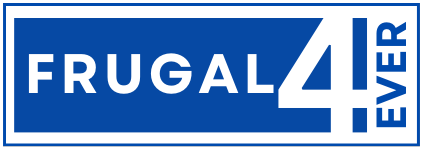
Affiliate marketing is a dynamic avenue for earning revenue by promoting products or services. Choosing the right partner programs is pivotal to your success in this endeavor. In this article, we'll guide you through How to Choose the Right Affiliate Program, ensuring that your efforts yield the best results.
What is Affiliate Marketing
Affiliate marketing is a dynamic and lucrative digital marketing strategy that allows individuals or businesses (affiliates) to gain commissions by advertising products or services of other companies (merchants). This collaborative arrangement benefits both affiliates and merchants, as it drives sales and expands the reach of products or services to a wider audience.
At its core, affiliate marketing is a revenue-sharing model based on performance. Affiliates sign up for affiliate programs merchants offer and receive unique tracking links or codes. They then incorporate these links into their promotional efforts, such as websites, blogs, social media, or email marketing.
The magic of affiliate marketing happens when a user clicks on an affiliate's tracking link and performs a specific action, like building a buy, signing up for a newsletter, or filling out a form on the merchant's website. The affiliate earns a commission or a predetermined monetary reward when this action occurs.
Affiliate marketing thrives on the principle of win-win-win. The merchant gains additional sales without upfront marketing costs, the affiliate earns commissions for successful referrals, and the consumer discovers valuable products or services through trusted recommendations.
| Statistic | Value |
| Total Affiliate Marketing Industry Revenue (2023) | $17 billion |
| Expected Industry Revenue (2027) | $27.78 billion |
| Percentage of Online Orders via Affiliate Marketing (US) | 16% |
| Percentage of Marketers Using Affiliate Marketing for Awareness | 83% |
| Percentage of Affiliate Marketers Earning < $10,000/year | 57.55% |
| Average Affiliate Marketer Earnings (US) | $50,000/year |
| Bottom 10% Affiliate Marketer Earnings (US) | $37,000/year |
| Top 10% Affiliate Marketer Earnings (US) | $71,000/year |
| Percentage of Affiliate Marketers Concerned About Fraud | 63% |
| Percentage of Affiliate Marketers Who Experienced Fraud | 30.9% |
Please note that these figures are based on the data provided for the year 2023 and are subject to change over time.
The choice of affiliate partner programs is a pivotal decision in the affiliate marketing journey. These programs vary in terms of products or services offered, commission structures, payment schedules, and support provided. Selecting the right partner programs that align with your niche, resonate with your audience, and maintain reliability is essential for affiliate success.
Who is an Affiliate?
Affiliates, whether individuals or businesses, specialize in cultivating and nurturing high-value audiences within specific niches such as data consulting, B2B marketing, and payment processing. The most successful affiliates invest time in providing valuable content to their audience, showing themselves as experts in their respective niches, and earning trust.
These affiliates work diligently to build a loyal following with great faith in their recommendations. Selecting the ideal affiliate for your business involves aligning your affiliate program with their primary concerns, which include boosting cash flow and solidifying their reputation. It's worth noting that there are certain similarities between affiliate marketers and influencers.
These roles can often overlap, even in business rather than just consumer industries. Affiliates may be perceived as influencers or “thought leaders” in their own right. Consequently, finding the right affiliate for your business entails aligning your affiliate program with the core priorities of affiliates, namely enhancing revenue and strengthening their position.
How to Choose the Right Affiliate Program
Searching for the ideal affiliates to collaborate with your affiliate marketing program is essential for boosting direct sales. Here are key tips on where to discover affiliate marketing partners for your brand:
1. Start With Your Customers
In business terms, leveraging your existing customer base can be likened to “low-hanging fruit” because it's the simplest way to find valuable affiliates for your affiliate marketing program. Encouraging your customers to become affiliates can yield a higher ROI, as they are more likely to accept compensation through discounts or free products.
However, it's important to note that relying solely on customers as affiliates may limit your reach, as they typically have access to a relatively small audience. To maximize this approach, utilize your mailing list to promote your affiliate program to current customers. Additionally, streamline the sign-up and participation processes, as a large influx of customer affiliates can lead to significant administrative work.
2. Join Affiliate Networks and Directories
Affiliate marketing networks and directories provide brands with a convenient and straightforward means to connect with potential publishers interested in participating in their affiliate programs. These platforms operate just as their names suggest. Most of them offer two primary methods for expanding your program.
Firstly, they enable you to showcase the particulars of your affiliate program, allowing prospective affiliates to apply for participation. Secondly, they offer the option to explore potential affiliates who align with your specific criteria and initiate contact with them. Some notable examples of affiliate networks include ClickBank, Refersion, and FlexOffers.
3. Approach Influencers
While affiliate and influencer marketing may have distinct approaches, influencers can effectively transition into potent affiliates for your brand. This transformation is primarily attributable to three key factors:
- They boast substantial audiences.
- They possess the ability to influence their audiences' purchasing decisions.
- They excel at crafting compelling content that drives their audience to take action.
Identifying influencers within your niche can be accomplished using influencer marketing search tools like Julius or Upfluence. It's important to note that influencers are typically in high demand from various brands. Convincing them to engage in an affiliate arrangement can be challenging compared to a flat fee model. This often leads to negotiations regarding commission percentages, potentially resulting in lower profit margins.
4. Research Niche Sites and Blogs
When managing an affiliate marketing program, the significance of search engines like Google should not be underestimated. These platforms provide a convenient means to swiftly and effortlessly identify websites and blogs within your niche. This becomes notably efficient when you employ search engine queries such as:
“Top [Insert Niche] websites”
Such queries often yield lists of websites relevant to your niche, streamlining the process of approaching numerous sites quickly. Once you've identified pertinent sites, you can contact them to propose participation in your affiliate program. This approach is advantageous because potential customers will likely discover these sites within your niche if they rank high in search results. Nonetheless, it's important to acknowledge that this method can be time-intensive, often requiring outreach to multiple site owners to successfully onboard just a few affiliates.
| Affiliate Market | Market Value | Average Commission Rate |
| E-commerce | $17 billion | 5-30% |
| Education | $8 billion | 10-50% |
| Software | $5 billion | 10-50% |
| Finance | $4 billion | 10-50% |
| Travel | $3 billion | 5-20% |
5. Join Online Communities, Groups, and Forums
When searching for potential affiliates, focusing on individuals who actively engage with and possess expertise in your niche is highly advantageous. This approach allows you to identify those naturally establishing influence among others who would find value in your products or services.
A straightforward Google search can guide you to online communities, groups, and forums relevant to your niche, serving as excellent sources for discovering these individuals. While this method is an effective means of finding affiliate marketing partners, it's essential to recognize that it can be time-consuming due to the need for outreach and engagement within these platforms.
6. Research Your Competitors’ Affiliates
Researching affiliates associated with your competitors can be a strategic approach to identifying individuals enthusiastic about participating in affiliate programs within your niche. It's also probable that your competitors have already undertaken the vetting process for these affiliates, which can save you valuable time. To uncover these affiliates, you can employ various methods, including:
- Exploring social media by searching for hashtags used by your competitors.
- Scanning posts where your competitors are tagged, providing potential leads to affiliates.
- Investigating your competitors' presence on platforms like YouTube.
- Performing Google searches using your competitors' and product names to unveil affiliate connections.
7. Advertise Your Affiliate Program on Your Website
Expanding your affiliate network doesn't necessarily require proactive outreach efforts. Just displaying an advertisement on your website stating that you are actively seeking affiliates can effectively generate inbound inquiries and sign-ups. This approach lets you tap into your existing customer base and the website's audience.
Additionally, it opens up the possibility of attracting potential affiliates using search engines to seek out affiliate programs in your niche. However, it's worth noting that this approach may progress slowly, as you'll need to await inquiries from potential affiliates. Furthermore, it may result in additional administrative work, as you'll need to sift through and evaluate inquiries to identify the most suitable candidates.
8. Join Networking Events
Participating in networking events presents a valuable opportunity to connect with individuals and publishers who may be interested in joining your affiliate program. When you seek out networking events within your niche, you gain access to potential affiliates actively engaged in your specialized field. This principle similarly applies to trade events and exhibitions.
9. Use Social Media
Social media platforms give a valuable avenue for discovering potential affiliates for your program. To identify potential affiliates on social media, consider employing various strategies:
- Search for hashtags relevant to your brand.
- Explore your existing followers and connections.
- Investigate accounts that engage with your posts.
- Examine accounts that interact with your competitors' content.
- Monitor accounts that mention your brand, products, or services.
While this approach can be effective for finding suitable affiliates, it may necessitate a significant time investment.
10. Hire an Affiliate Manager
Hiring an affiliate manager is a strategic option for those who wish to approach affiliate marketing with utmost dedication. Affiliate managers are experts well-versed in every facet of affiliate marketing. Their roles encompass creating affiliate target profiles, identifying potential affiliates meeting your criteria, and crafting persuasive and professional emails inviting them to join your program.
It's worth noting that employing a full-time or freelance affiliate manager constitutes a substantial financial commitment. Nonetheless, when the hiring process is executed effectively, it has the potential to yield exceptional results and a high return on investment (ROI) for your affiliate program.
Identifying Your Niche and Audience
In affiliate marketing, your journey to success begins with a clear understanding of your niche and your target audience. These foundational elements are the compass that guides your affiliate marketing efforts toward How to Choose the Right Affiliate Program, fruitful partnerships, and conversions.
Niche Selection Mastery:
Choosing the right niche is a critical decision in affiliate marketing. Your niche defines the scope of your affiliate efforts and significantly impacts your chances of success. Here's how to master the art of niche selection:
- Areas of Expertise and Passion: Start your journey by considering your areas of expertise and passion. What topics, products, or services genuinely interest you? Passion fuels your marketing efforts, making your promotions more authentic and convincing.
- Market Demand and Competition: Conduct comprehensive market research to assess the request for products or services in your chosen niche. Analyze the level of competition to understand the landscape and identify opportunities. While a competitive niche can be lucrative, niches with less competition may offer untapped potential.
- Audience Relevance: Ensure that your chosen niche resonates with your target audience. Your niche should align with your audience's interests, problems, or desires. It's not just about what interests you; it's about what your audience is seeking. A niche that solves problems or fulfills the desires of your audience holds greater potential for success.
Conducting Market Research:
Once you've selected a niche, the next crucial step is conducting thorough market research to gain deep insights into your target audience. Market research helps you tailor your affiliate marketing efforts to engage and convert your audience effectively. Here's how to conduct effective market research:
- Define Your Audience: Begin by clearly defining your ideal audience. Consider age, gender, location, interests, income level, and other relevant demographics. Creating detailed buyer personas helps visualize your target audience.
- Use Data Analytics: Leverage data analytics tools to gather information about your audience's online behavior. Understand their search habits, social media engagement, and content preferences. This data-driven approach enables you to create content and promotions that resonate with your audience.
- Competitor Analysis: Study competitors who operate in the same niche. Analyze their audience engagement strategies, content types, and distribution channels. Identify gaps or opportunities to cater to your audience better or offer unique value.
- Surveys and Feedback: If you already have an audience or customer base, consider conducting surveys or gathering feedback. Direct insights from your audience can provide valuable information about their preferences, pain points, and needs.
Mastering niche selection and conducting effective market research are foundational steps in affiliate marketing. These steps help you build a solid foundation by selecting a niche that coordinates with your interests and audience needs while leveraging data and insights to refine your marketing strategies for maximum engagement and conversions.
Assessing Affiliate Partner Program Reliability

In affiliate marketing, partner program reliability is essential to create or break your success. Ensuring that your affiliate programs are reputable, trustworthy, and well-structured is essential. Here's how to assess the reliability of partner programs effectively:
Investigate Program Reputation:
When embarking on your affiliate marketing journey, the reputation of the affiliate program you choose should be your top consideration. Start by thoroughly researching the program's reputation within the affiliate marketing community. Look for reviews and testimonials from other affiliates who have firsthand experience with the program.
Reputable affiliate programs are often well-regarded for their fairness, reliability, and ethical business practices. Positive feedback from fellow affiliates can serve as a strong indicator of a program's trustworthiness. Conversely, if you encounter a program with numerous negative reviews or reports of unfulfilled promises, it's a clear red flag to proceed with caution.
Examine Program History:
An affiliate program's history and track record are valuable indicators of its reliability. While newer programs may offer exciting opportunities, established programs with a history of consistent operations and payments tend to be more dependable.
A program's longevity suggests that it has weathered the industry's challenges and maintained its affiliates' trust over time. When considering an affiliate program, inquire about its launch date and assess its track record of fulfilling payment obligations to affiliates. A program with a solid history of reliable payments is a strong candidate for partnership.
Financial Stability:
Financial stability is a cornerstone of partner program reliability. After all, you're entering into an affiliate partnership with the expectation of earning commissions. It's crucial to assess whether the program has a track record of making timely and consistent payments to its affiliates.
Look for signs of financial stability, such as the program's ability to meet its financial obligations without delays or disruptions. Payment delays or irregularities can be warning signs of potential issues. Reliable programs prioritize prompt and consistent payments to their affiliates, ensuring you receive the commissions you've earned promptly.
Program Terms and Conditions:
The terms and conditions of an affiliate program are the contractual foundation of your partnership. Thoroughly review these terms to ensure they are fair, transparent, and aligned with your expectations. Pay close attention to the following key areas:
- Payment Structures: Examine the program's commission structure. Are the commission rates competitive and reasonable? Are there tiered structures that reward high-performing affiliates?
- Commission Payouts: Understand the program's payout frequency and minimum payout thresholds. Reliable programs provide clear information on when and how you'll receive your commissions.
- Affiliate Responsibilities: Review any clauses related to your responsibilities as an affiliate. Ensure that the program's expectations are reasonable and achievable.
- Restrictions: Be aware of any restrictions or guidelines governing your promotional activities. Ensure that you can comply with these guidelines without compromising your marketing strategies.
By carefully assessing the program's terms and conditions, you can enter into the partnership with a clear understanding of the expectations, ensuring a transparent and mutually beneficial relationship.
Check Payment Methods:

Payment methods and schedules play a significant role in assessing partner program reliability. Affiliate programs should offer payment options that are convenient and accessible to you as an affiliate. Timely and reliable payments indicate a program's commitment to its affiliates.
Verify the available payment methods offered by the program. Common payment options include bank transfers, PayPal, checks, and electronic funds transfers (EFT). Ensure that the program supports payment methods suitable for your location and preferences.
| Payment Method | Popularity Among Affiliates (%) | Preferred by Affiliates (%) |
| PayPal | Over 50% | 19% |
| Direct Deposit | Over 30% | 69% |
| Other Methods (e.g., checks, wire transfers, prepaid cards) | Varied | 6% |
In addition to payment methods, review the program's payment schedule. Reliable programs specify when and how often you expect to receive your commissions. Clear and transparent payment schedules instill confidence and trust in the partnership.
It's advisable to prioritize affiliate programs that provide flexibility in payment methods, accommodate your preferred choices, and maintain a consistent track record of on-time payments. Payment reliability is fundamental to affiliate program reliability and contributes to a positive affiliate experience.
Product or Service Alignment:
In affiliate marketing, aligning the products or services you promote and your chosen niche and audience is critical to your success. Achieving seamless alignment enhances user trust, engagement, and, ultimately, your conversion rates. Here's how to ensure your product or service alignment is spot on:
Align with Your Niche:
Aligning the products or services you promote with your niche is akin to creating a seamless fit between your content and affiliate offerings. Your niche is the thematic core of your online presence, and your audience comes to you for information, insights, or entertainment within that niche. When selecting affiliate products or services, consider their relevance to your niche.
For example, if you run a technology blog focused on smartphones and gadgets, promoting software for financial planning may not align well. Instead, opt for affiliate programs related to tech gadgets, mobile accessories, or app reviews. The closer the alignment between your niche and affiliate offerings, the more natural and authentic your promotions will feel to your audience.
Resonate with Your Audience:
Understanding your audience's preferences and needs is paramount to effective product or service alignment. To resonate with your audience, delve into their motivations, challenges, and aspirations. Ask yourself what products or services could genuinely enhance their lives or address their pain points.
For instance, if your audience consists of young parents seeking parenting advice on your blog, affiliate promotions for baby care products, parenting books, or child safety gear would likely resonate well. Addressing your audience's needs and interests establishes trust and credibility, increasing the likelihood of conversions.
Personal Belief and Understanding:
Promoting products or services you believe in and understand is a powerful alignment strategy. When you have firsthand experience with the offerings, you can speak from a position of authenticity and authority.
Consider an affiliate marketer running a travel blog. Their recommendations carry weight if they genuinely enjoy a particular travel booking platform, have used it extensively, and have had positive experiences. Their audience is likely to trust their advice because it stems from real experiences and convictions.
Incorporate products or services that resonate with your interests and expertise into your affiliate marketing strategy. When your recommendations are backed by genuine enthusiasm and knowledge, your audience is more likely to view them as valuable and trustworthy.
Match Your Content and Promotions:
Seamlessly integrating your affiliate promotions into your content is essential for alignment. Your audience should not feel bombarded by intrusive advertisements. Instead, your promotions should complement and enhance the user experience.
For instance, if you run a cooking blog and write a recipe post featuring a specific kitchen gadget, you can naturally incorporate an affiliate link. Mention how the gadget simplifies the cooking process and provides a link for readers to learn more or purchase. This approach ensures your promotions are contextually relevant and useful to your audience.
Transparency and Honesty:
Transparency and honesty are bedrock principles of ethical affiliate marketing. Your audience should always be aware of your affiliate relationships, and you should be candid about any potential biases in your promotions.
Disclose your affiliations, whether through a disclaimer on your website or by mentioning it in relevant posts. Honesty builds trust, and a trustworthy affiliate marketer is more likely to retain a loyal audience.
For example, if you're reviewing a product you're affiliated with, explicitly mention your affiliate status and clarify that you may earn a commission if the reader purchases through your link. Explain that your review is impartial and based on an honest assessment of the product's merits and drawbacks.
By prioritizing transparency and honesty in your affiliate marketing endeavors, you foster credibility and maintain the trust of your audience. This trust, in turn, enhances the effectiveness of your product or service alignment efforts.
Avoid Conflicts of Interest:
Conflicts of interest can undermine your affiliate marketing efforts and erode trust with your audience. Prioritizing your audience's best interests over your financial gains is essential. Avoid promoting products or services solely for higher commissions if they don't align with your niche or audience needs. Striking a balance between your financial objectives and your audience's benefit is key to maintaining alignment and trust.
Monitor Product Quality:
Your reputation as an affiliate marketer hinges on the quality of the products or services you promote. Regularly assess the quality and performance of your affiliate offerings. Take action if you receive feedback from your audience regarding subpar products or negative experiences. Consider discontinuing promotions for products that consistently receive poor reviews or have declining quality standards. Your audience's satisfaction should remain your top priority to preserve your credibility.
Diversify Your Offerings:
While alignment is crucial, diversifying your affiliate offerings can enhance revenue streams. Consider promoting a mix of complementary products or services within your niche. By offering a range of options, you cater to different aspects of your audience's interests and needs. This diversification can also help you capture a broader audience and produce revenue from different sources. However, ensure that all your offerings maintain alignment with your niche and audience to avoid diluting your brand's focus.
Commission Structures and Payouts

Understanding the intricacies of commission structures and payout mechanisms is paramount in affiliate marketing. How you earn and when you receive your commissions directly affects your profitability and cash flow. Here's a comprehensive look at commission structures and payouts in the affiliate marketing landscape:
| Statistical Data | Values/Statistics |
| Average Affiliate Commission Rate | 5% (varies by industry and product) |
| Most Common Commission Structure | Pay-per-sale (72%) |
| Top-Paying Affiliate Programs | Software/SaaS: Average 20% commission rate |
| Affiliate Payout Frequency | Mostly monthly, some weekly or daily |
| Average Affiliate Earnings | $500 per month (varies widely) |
| Survey Insights | Percentage of Respondents |
| Commission Rate Increase in the Past Year | 63% |
| Satisfaction with Current Commission Rates | 58% |
| Most Popular Affiliate Marketing Platform | ShareASale (26%) |
| Most Common Affiliate Marketing Channel | Social Media (58%) |
1. Commission Structures:
- Cost Per Sale (CPS): This is one of the most common commission structures in affiliate marketing. Affiliates earn a commission when a referred user purchases through their affiliate link. The commission is usually a percentage of the sale cost or a fixed amount per sale.
- Cost Per Action (CPA): In CPA affiliate marketing, affiliates earn a commission when referred users take a specific action, such as signing up for a magazine, filling out a form, or downloading an app. CPA offers a more predictable income stream compared to CPS.
- Cost Per Click (CPC): CPC affiliate programs compensate affiliates based on the number of clicks their affiliate links generate, regardless of whether the referred users purchase. CPC is common in the context of pay-per-click advertising.
- Revenue Share (RevShare): This structure involves earning a percentage of the revenue from referred users over their lifetime as customers. RevShare is prevalent in industries like online gambling and subscription services.
- Two-Tier Commissions: Some affiliate programs offer two-tier commissions. In this structure, affiliates earn commissions for their direct referrals and receive a smaller commission for referrals made by affiliates they've recruited into the program.
2. Payout Mechanisms:
- Payment Threshold: Affiliate programs often set a minimum earnings threshold that affiliates must reach before receiving payouts. Ensure you know the threshold and choose programs aligned with your earning goals.
- Payment Methods: Affiliate programs offer various payment methods, including bank transfers, PayPal, checks, and electronic funds transfers (EFT). Select programs that support payment methods that are convenient and accessible for you.
- Payment Frequency: Payout schedules vary, with some programs offering monthly, bi-monthly, or weekly payments. Consider your financial needs and preferences when choosing programs with suitable payout frequencies.
- Minimum Payout Delay: Some programs delay when earnings are generated and when they become eligible for payment. Remember any minimum payout delays, as they can affect your cash flow.
- Payment Currency: Affiliate programs may offer payouts in different currencies. Ensure the program's payment currency aligns with your financial preferences and avoids currency conversion fees.
- Payment Tracking and Reporting: Reliable affiliate programs provide robust tracking and reporting tools that enable you to monitor your earnings, conversions, and payment status in real-time.
- Tax Considerations: Depending on your location and the program's policies, taxes may be withheld from your earnings. Familiarize yourself with tax regulations and implications associated with affiliate marketing income.
Understanding commission structures and payout mechanisms empowers you to make informed decisions when selecting affiliate programs. Consider your niche, audience, financial goals, and preferred payment methods to choose programs that align with your objectives. A well-structured affiliate partnership can lead to a sustainable and profitable revenue stream in affiliate marketing.
Support and Resources
In affiliate marketing, access to adequate support and resources is essential for your success. These elements can greatly impact your ability to optimize strategies, troubleshoot issues, and maximize earnings. Here's an in-depth exploration of the support and resources that can bolster your affiliate marketing journey:
1. Affiliate Manager Assistance:
- Dedicated Affiliate Managers: Some affiliate programs assign dedicated affiliate managers to work closely with affiliates. These managers offer personalized support, guidance, and insights tailored to your needs. They can help you with campaign optimization, provide marketing assets, and address any concerns or questions.
- Communication Channels: Ensure that the affiliate program provides clear communication channels to reach your affiliate manager promptly. Options may include email, phone, live chat, or regular meetings. Responsive affiliate managers can be invaluable resources.
2. Marketing Assets:
- Creatives and Banners: Many affiliate programs offer a range of marketing creatives, such as banners, graphics, and ad copy, for you to use in your promotions. These assets are designed to enhance the visual appeal and effectiveness of your marketing materials.
- Customized Landing Pages: Some programs can create customized landing pages, allowing you to tailor the user experience to your audience and campaign goals. These landing pages often come with tracking features for performance analysis.
- Product Data Feeds: For affiliates in e-commerce niches, product data feeds can be valuable resources. These feeds provide detailed product information, including images, descriptions, prices, and availability, making it easier to create product-centric content.
3. Reporting and Analytics Tools:

- Real-time Tracking: Robust affiliate programs offer real-time tracking and reporting tools. These tools permit you to monitor the performance of your affiliate links, track conversions, and analyze user behavior. Access to accurate data is crucial for optimizing your strategies.
- Conversion Insights: Dive into conversion data to gain insights into the most effective promotional methods. Identify high-performing campaigns and replicate their success while refining underperforming ones.
- Traffic Sources Analysis: Analyze the sources of traffic that generate the most conversions. This information can help you allocate your resources more effectively and focus on traffic channels that yield the best results.
4. Educational Resources:
- Tutorials and Guides: Many affiliate programs offer tutorials, guides, and documentation to help you navigate their platform and optimize your marketing efforts. These resources may cover campaign setup, implementation tracking, and compliance guidelines.
- Webinars and Training Sessions: Look for affiliate programs that host webinars or training sessions on affiliate marketing strategies and industry trends. Participating in these sessions can expand your knowledge and update you on the latest developments.
5. Affiliate Community:

- Affiliate Forums and Communities: Joining affiliate marketing forums and communities can provide you with a network of peers who can offer advice, share experiences, and answer questions. Engaging in these communities can help you stay informed and connected within the industry.
- Program-specific Groups: Some affiliate programs create private groups or forums exclusively for their affiliates. These forums facilitate discussions, knowledge sharing, and collaboration among affiliates promoting the same products or services.
6. Compliance and Guidelines:
| Statistical Data and Facts | Source |
| 92% of affiliate marketers have experienced affiliate fraud. | Awin |
| 80% of affiliate managers spend at least 20% of their time on compliance. | IAB |
| 50% of affiliate programs have been penalized for compliance violations. | ShareASale |
| The average cost of a single affiliate fraud case is $10,000. | Juniper Research |
| The global affiliate marketing market is expected to reach $23 billion by 2026. | Statista |
- Compliance Resources: Affiliate programs often provide guidelines to ensure affiliates adhere to industry regulations and program-specific rules. Complying with these guidelines is essential to maintain a positive partnership and avoid potential issues.
- Support for Compliance Challenges: In cases where you encounter compliance challenges or uncertainties, responsive affiliate managers or program support can assist you in understanding and resolving compliance issues.
7. Payment Transparency:
- Clear Payment Information: Transparent payment information, including payout schedules, thresholds, and methods, is essential. Ensure that you have a clear understanding of how and when you'll receive your earnings.
- Payment Tracking: Access to payment tracking and reporting tools allows you to monitor your earnings and ensures that you receive accurate and timely payments.
FAQ
What makes affiliate marketing an appealing income source, and why is partner program selection crucial?
Affiliate marketing suggests the potential for passive income, but success hinges on choosing the right partner programs that straighten with your niche and audience.
How can niche selection impact the choice of affiliate partner programs?
Niche selection informs which products or services you promote, directly influencing the compatibility of partner programs with your audience.
What should I consider when assessing the reliability of affiliate partner programs?
Look into program reputation, payment reliability, and terms to avoid scams and ensure a fruitful partnership.
Why is product or service alignment important in affiliate marketing, and how does it affect audience engagement?
Alignment enhances user trust and engagement, as promoting products that resonate with your niche fosters authenticity and credibility.
Can you explain the different commission structures in affiliate marketing and how they impact earnings?
Commission structures vary (e.g., CPA, CPS, CPC), affecting how and when you earn. Higher commissions might come with stricter conversion requirements.
Conclusion
Select Wisely, Succeed Greatly Choosing the perfect partner programs is the cornerstone of a thriving affiliate marketing journey. Choosing the Right Affiliate Program by aligning your niche and audience, assessing program reliability, considering commission structures, leveraging support and resources, and tracking your performance can pave the way for a lucrative affiliate marketing career. Start your journey today and watch your affiliate marketing endeavors flourish.
Data Source Links:
Demand Sage: https://www.demandsage.com/affiliate-marketing-statistics/
Kinsta: https://kinsta.com/affiliate-academy/affiliate-marketing-statistics/
OptinMonster: https://optinmonster.com/affiliate-marketing-statistics/
Influencer Marketing Hub: https://influencermarketinghub.com/affiliate-marketing-stats/










